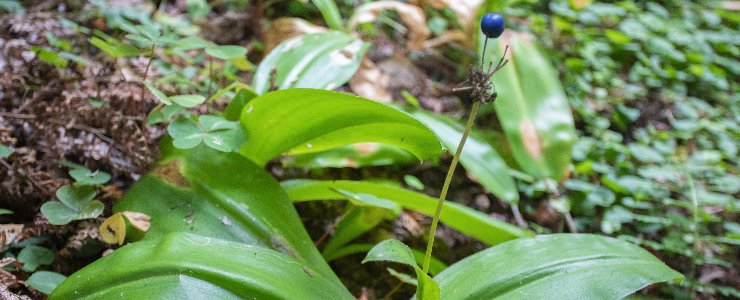Courses
The following courses are a selection of the available courses that fulfill major requirements.
Students are also encouraged to enroll in field quarters, quarter-long ecological field study experiences. More information can be found at the EEB field studies page.
For a full list of accepted courses please visit the Plant Sciences catalog page
BIOE 117 Systematic Botany of Flowering Plants
An examination of the taxonomy and evolution of flowering plants. Special topics include phylogenetics and cladistics, plant species concepts, and modern methods of systematic research.
BIOE 118 Plants and Society: the Biology of Food, Shelter, and Medicine
Introduces plant biology as it affects human society. Topics include the origins of agriculture, the morphology and chemistry of food plants, the material uses of plant products, the biology of medicinal plants, and plant diversity and bioprospecting.
BIOE 120 Marine Botany
An introduction to the biology of marine algae, fungi, and angiosperms with regard to form and function. Major boreal, temperate, and tropical marine plant communities. Lecture format.
BIOE 135 Plant Physiology
Cellular and organismal functions important in the life of green plants.
BIOE 145 Plant Ecology
An exploration of the ecology of plant form, function, distribution, abundance, and diversity. Topics include plant adaptation to environmental conditions, reproductive ecology, life history, population dynamics, competition, herbivory, disease, community assembly, ecosystem responses to global change, plant conservation, and restoration. Lecture with discussions of original papers and independent field projects.
ENVS 160 Restoration Ecology
A multidisciplinary overview of restoring degraded ecosystems. Among the topics addressed are linkages between ecological principles and restoration, planning and implementing restoration projects, evaluating restoration success, and case studies of restoration of specific ecosystem types.
ENVS 161A Soils and Plant Nutrition
Provides fundamentals of soils and plant nutrition. The physical, biological, and chemical components of soils are investigated in relation to their ecological functions, fertility to plants, and sustainable management.
ENVS 162 Plant Physiological Ecology
Describes how the environment affects plants through the linkages between water, energy, nutrients, photosynthesis, and plant growth. Demonstrates how plant recruitment, survival, and reproduction affect conservation and agriculture. Prior coursework in ecology and/or plant physiology is recommended.
ENVS 163 Plant Disease Ecology
Introduction to ecological roles of plant diseases, including their importance in regulating plant population dynamics, community diversity, and system function in natural ecosystems; considerations of plant diseases in conservation ecology; and ecological approaches to managing diseases in agroecosystems.

